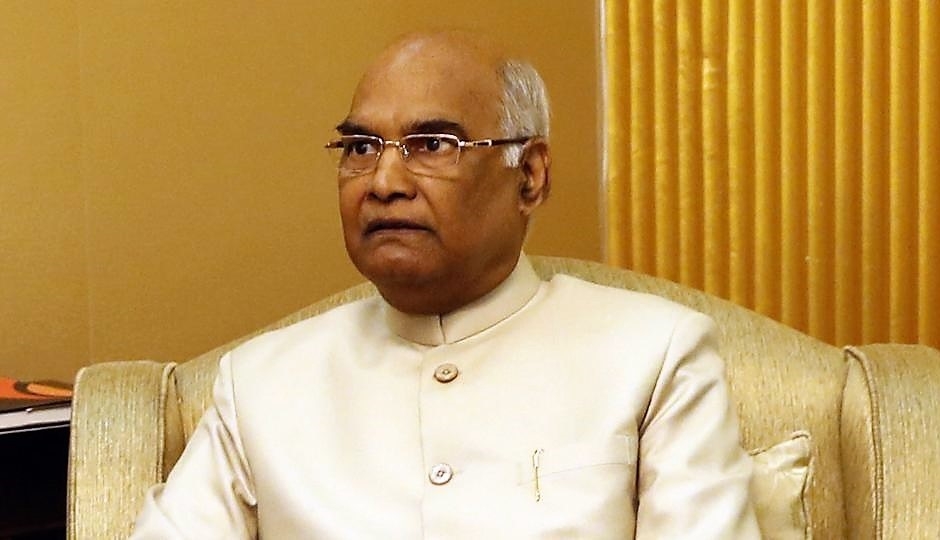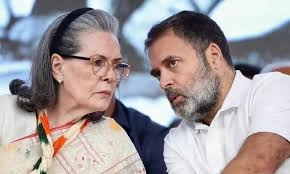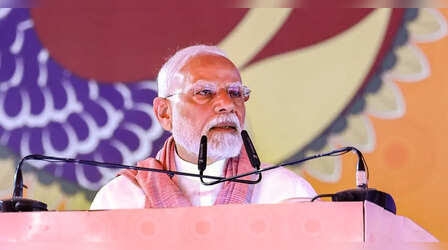Ram Nath Kovind on Thursday was elected as the 14th President of India after securing 65.65 per cent of the vote cast in the July 17 presidential elections. Kovind, 72, will be the second Indian President to come from the Dalit community. K R Narayanan was the first. Kovind will assume office on July 26.
Kovind emerged as the dark horse when springing a surprise, the Bharatiya Janata Party (BJP) chief Amit Shah on June 19 named the then Bihar Governor, a Dalit leader from the party, the ruling National Democratic Alliance’s (NDA's) nominee for the July 17 Presidential elections. Kovind has had a long innings in public life during which he fought for the cause of Dalits and the poor.
An advocate by profession, Kovind practised law in both the High Court and the Supreme Court. He was made the Governor of Bihar in 2015 after the NDA took office at the Centre in May the previous year. Once the head of the BJP's Dalit wing, Kovind had been a member of the Rajya Sabha for 12 years and a part of several parliamentary panels.
Born in Paraunkh village, in the Kanpur Dehat district of Uttar Pradesh, on October 1, 1945, Kovind earned his Bachelor of Commerce degree, followed by an LLB, from Kanpur’s BNSD Intercollege and DAV College. He was the general secretary of the All India Koli Samaj from 1971 to 1975, and the Union government advocate in the Delhi High Court in two stints – from 1977 to 1979 and from 1982 to 1984. He also served as the general secretary of the Depressed Classes Legal Aid Bureau. Kovind was first elected to the Rajya Sabha in 1994 and inducted in the BJP’s national executive in 1997. His second Rajya Sabha term was from 2000 to 2006. Kovind, who has one son and a daughter, has also served on the board of governors of the Indian Institute of Management.
Ram Nath Kovind on Thursday was elected as the 14th President of India after securing 65.65 per cent of the vote cast in the July 17 presidential elections. Kovind, 72, will be the second Indian President to come from the Dalit community. K R Narayanan was the first. Kovind will assume office on July 26.
Kovind emerged as the dark horse when springing a surprise, the Bharatiya Janata Party (BJP) chief Amit Shah on June 19 named the then Bihar Governor, a Dalit leader from the party, the ruling National Democratic Alliance’s (NDA's) nominee for the July 17 Presidential elections. Kovind has had a long innings in public life during which he fought for the cause of Dalits and the poor.
An advocate by profession, Kovind practised law in both the High Court and the Supreme Court. He was made the Governor of Bihar in 2015 after the NDA took office at the Centre in May the previous year. Once the head of the BJP's Dalit wing, Kovind had been a member of the Rajya Sabha for 12 years and a part of several parliamentary panels.
Born in Paraunkh village, in the Kanpur Dehat district of Uttar Pradesh, on October 1, 1945, Kovind earned his Bachelor of Commerce degree, followed by an LLB, from Kanpur’s BNSD Intercollege and DAV College. He was the general secretary of the All India Koli Samaj from 1971 to 1975, and the Union government advocate in the Delhi High Court in two stints – from 1977 to 1979 and from 1982 to 1984. He also served as the general secretary of the Depressed Classes Legal Aid Bureau. Kovind was first elected to the Rajya Sabha in 1994 and inducted in the BJP’s national executive in 1997. His second Rajya Sabha term was from 2000 to 2006. Kovind, who has one son and a daughter, has also served on the board of governors of the Indian Institute of Management.












154.jpeg)
205.jpeg)
277.jpeg)
626.jpeg)
275.jpeg)
274.jpeg)
11.jpeg)





